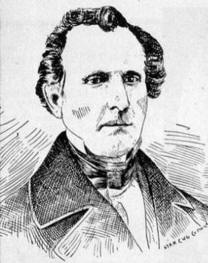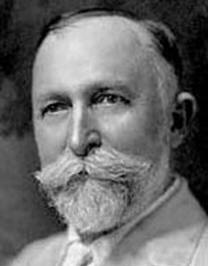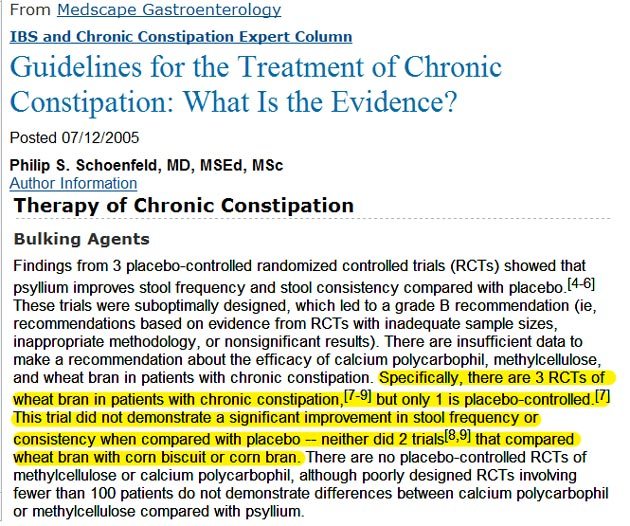Fiber Menace: Introduction
“Thou Shalt Not Eat Any Abominable Thing”[1]
Deuteronomy.14:3
“Those who believed that the Earth was flat had been staring at the exact same horizon as those who discovered that it‘s round.”
Konstantin Monastyrsky, author
Back in the 1830‘s, a Presbyterian minister named Sylvester Graham (1794—1851) crusaded against anything and everything that he considered the “playboy philosophy.” According to Graham, men should abstain from sex until the age of 30 and have sex just once a month thereafter. To control lust, Graham prescribed a high-fiber vegetarian diet.
 Besides sex, Graham campaigned against soft
mattresses, hot baths, and other “sensual” things not worthy of
“real men,” because, according to Graham, they led to “venereal
excess.” That‘s how hard beds and cold showers entered into the
American pantheon of manhood, and turned countless boys into
rebellious neurotics, drug users, and alcoholics. Alas,
substance abuse and mental disorders often follow even a mildly
abusive childhood.
Besides sex, Graham campaigned against soft
mattresses, hot baths, and other “sensual” things not worthy of
“real men,” because, according to Graham, they led to “venereal
excess.” That‘s how hard beds and cold showers entered into the
American pantheon of manhood, and turned countless boys into
rebellious neurotics, drug users, and alcoholics. Alas,
substance abuse and mental disorders often follow even a mildly
abusive childhood.
Graham preached equally hard against white bread because it lacked fiber and, presumably, caused constipation. In time, this rhetoric gave birth to Graham flour—a coarsely ground wheat made into Graham bread, Graham muffins, and Graham crackers, which eventually degenerated into the ubiquitous sugar-laden children‘s cookies made from refined white flour practically devoid of fiber.[2]
Ironically, Sylvester Graham was the seventeenth child of the Reverend John Graham, who was 72 years old at the time of his son‘s birth. Graham himself lasted for just 57 years and died alone and in obscurity, in large part because of his abrasive, irritable personality—a typical manifestation of acute protein deficiency and unstable blood sugar. Apparently, in Graham‘s own case, a strict vegetarian diet, harsh fiber, and prudish abstinence brought neither health nor happiness. Nonetheless, his message took hold. But it took another century to finally hook Americans on fiber for good.
 John Harvey Kellogg (1852–1943) was everything
Sylvester Graham was not—a practicing physician, a celebrated
surgeon, a successful entrepreneur, a charitable individual, an
author of numerous books, articles, and patents, an accomplished
lecturer, a man of strong principles, and one of the most
prominent and influential health reformers of his time. His
impact on American dietary habits was far more profound (and far
more damaging) than Graham‘s because he had the resources, the
forum, the charisma, the conviction, and the authority to
deliver his message over a long, long period of time and to lots
and lots of people.
John Harvey Kellogg (1852–1943) was everything
Sylvester Graham was not—a practicing physician, a celebrated
surgeon, a successful entrepreneur, a charitable individual, an
author of numerous books, articles, and patents, an accomplished
lecturer, a man of strong principles, and one of the most
prominent and influential health reformers of his time. His
impact on American dietary habits was far more profound (and far
more damaging) than Graham‘s because he had the resources, the
forum, the charisma, the conviction, and the authority to
deliver his message over a long, long period of time and to lots
and lots of people.
Just like Graham, Kellogg was obsessed with chastity and constipation. True to principle, he never made love to his wife. To “remedy” the sin of masturbation, he advocated circumcision without anesthetic for boys and mutilation of the clitoris with carbolic acid[3] for girls. He blamed constipation for “nymphomania” in women and lust in men, because, according to Kellogg, impacted stools[4] inside one‘s rectum were stimulating the prostate gland and the female vagina into sexual proclivity.
His prescription was part vintage Graham, part New World ingenuity—a coarse vegetarian diet, one-to-three ounces of bran daily, and paraffin oil with every meal. This regimen wasn‘t without a rational: as any nutritionist will tell you (and as Graham and Kellogg undoubtedly observed themselves), the decline of libido, functional impotence, and infertility are among the very first symptoms of chronic protein deficiencies prevalent among vegans.[5] For similar reasons, numerous religions prescribe vegan diets for monks and nuns. It isn‘t as radical a solution as clitoral mutilation or punitive circumcision, but it‘s equally effective.
The rational behind paraffin oil—the same oil used to light oil lamps—was different. Because all that fiber in the Kellogg‘s diet caused large stools and hemorrhoidal disease, the oil was prescribed as a laxative stimulant and lubricant to ease off straining, anal lacerations, and hemorrhoidal pain.
As with any “drug,” you gain some, lose some more: constant anal leakage was one of paraffin oil‘s most immediate side effects; more serious—it was washing out already meager fat-soluble vitamins A, D, E, and K from the intestines, which caused blindness, infertility, birth defects, immune disorders, diabetes, cancers, osteomalacia (soft bones), and hemophilia (inability of blood to clot). Kellogg was just plain lucky that only the most stubborn diehards—too few to expose the quackery—could stick to the daily regimen of paraffin oil long enough to kill themselves.
Despite his obvious nuttiness, Kellogg lived and worked to 91. He could never have accomplished this feat following his own counsel because to last that long, he would have needed a daily supply of primary (animal) proteins and fat, which can‘t be obtained from a vegetarian diet alone. And that‘s even before taking into account the devastating vitamin deficiency caused by the daily intake of paraffin oil. More likely, Kellogg was a typical hypocrite, who didn‘t practice what he preached, sex or no sex.
Even though Kellogg‘s delirious ideas had more holes than a fine sieve, his message took hold, and his namesake[6] company is still minting a fortune by peddling, among other things, sugared breakfast cereals fortified with fiber. In 2004 alone, the Kellogg Company spent over $3.5 billion[7] just on “promotional expenditures.” No wonder fiber is still on everyone‘s mind and in everyone‘s stools, and remains as popular as ever, even though John Harvey Kellogg is long gone.
So if you believe that the introduction of fiber into the American diet came about as a result of thorough academic research, methodical clinical investigation, and penetrating peer reviews, I‘m sorry to disappoint you, but it didn‘t. It‘s actually based on profane sacrilege[8], fanatical misogynism, medieval prudishness, common quackery, crass commercialism, incomprehensible medical incompetence, and, by the legal standards of today, negligence and malpractice.
Even when a few legitimate attempts were made to validate Graham‘s and Kellogg‘s rationale for fiber in regard to constipation and intestinal health, according to the American College of Gastroenterology Functional Gastrointestinal Disorders Task Force, they amounted to nothing at best [link]:
At worse, according to the same source, fiber “has been associated with bloating,” “mechanical obstruction of the esophagus and colon,” and, in the case of psyllium, “will likely worsen symptoms in an IBS patient,” effects “similar to placebo” and “anaphylactic reactions” — an euphemism for a toxic shock few survive.
All that and much, much more is the subject of this book—a penetrating investigation into the menacing role of dietary fiber in your health and nutrition.
Footnotes
1Bible, King James Version; Deuteronomy.14:3.
2Nabisco Graham Crackers; 21 g of carbohydrates and 1 g of fiber per one 28 g serving; NDB No: 18617; USDA National Nutrient Database for Standard Reference; [link]
3John Harvey Kellogg, MD; Treatment for Self-Abuse and its Effects: Plain Fact for Old and Young; F. Segner & Co.; 1888.
4For impacted stools to happen, a person must experience rectal impaction, which is an abnormal accumulation of hard stools inside the rectum. This is a condition usually associated with toddlers, paraplegics, the bedridden, infirm, and very old—not exactly a group of characters with sex on their minds.
5Strict vegetarians (i.e. vegans) don’t consume dairy, eggs, fish, seafood, fowl, or meat of any kind. Their diet consists of nothing but carefully combined vegetables, fruits, grains, and legumes. Protein malnutrition among vegans is common, and widely described in medical literature. Many Westerners consider themselves “vegetarians” even though the only food they exclude from their diet is red meat and pork. Nonetheless, the lore of “healthy vegetarians” is quite popular. I’ve yet to meet a person who didn’t know one, even though only 1% of adults in America (under two million) are practicing vegans, and most of them take prodigious amounts of supplements—vitamins, minerals, essential fatty acids, and free-form amino acids needed to maintain half-decent health.
6Kellogg Company of today was the result of an acrimonious split between John Kellogg and his brother and business partner Will, who insisted on adding sugar to the cereals. Sugar won. True to his principles, Dr. Kellogg never spoke to brother Will again.
7Kellogg Company Annual Report 2004; Page 30; [link]
8 Although fiber wasn’t explicitly mentioned in the scriptures, even God couldn’t have foreseen that some people would be crazy enough to consume indigestible substances and wash them down with lighting oil. Besides, Graham’s and Kellogg’s anti-sex crusade is a willful desecration of the sanctity of marriage.
9Philip S. Schoenfeld, MD, MSEd, MSc; Guidelines for the Treatment of Chronic Constipation: What Is the Evidence?; Medscape Gastroenterology. 2005;7(2) ©2005 Medscape; [link]. This quote refers to the following studies:
(7) Badiali D, Corazziari E, Habib FI, et al. Effect of wheat bran in treatment of chronic nonorganic constipation. A double-blind controlled trial. Dig Dis Sci. 1995;40:349–356.
(8) Anderson AS, Whichelow MJ. Constipation during pregnancy: dietary fibre intake and the effect of fibre supplementation. Hum Nutr Appl Nutr. 1985;39:202–207.
(9) Graham DY, Moser SE, Estes MK. The effect of bran on bowel function in constipation. Am J Gastroenterol. 1982;77:599–603.

